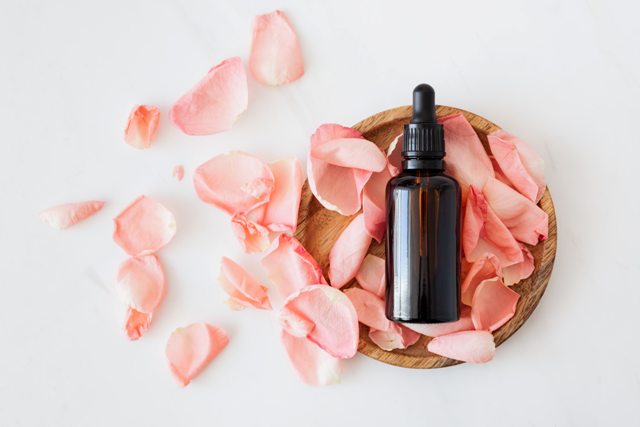Unveiling the Golden Elixir: The Wonders of Sesame Oil

Few ingredients in the realm of culinary treats and herbal treatments have the variety and historical significance of sesame oil. Sesame oil referred to as the “queen of oils,” has been adored for generations for its exquisite flavor, nutritional advantages, and variety of uses. This article will examine the history, makeup, health advantages, and applications of sesame oil. It illuminates the exceptional properties that have made it a common ingredient in kitchens and medicine cabinets all over the world.
Sesame oil has acquired its status as a cherished ingredient in both the culinary and pharmaceutical sectors. It is due to its extensive history, amazing composition, and health advantages. Sesame oil is a golden elixir that is prepared to improve your life, whether you want to improve the flavors of your food or find all-natural treatments for different health issues. So why not embrace this priceless antiquity and incorporate sesame oil into your daily diet and wellness routine? Your body and taste buds will appreciate it.
A Quick Histories
Sesame oil’s history can be to prehistoric societies, primarily in Asia and the Middle East. Sesame farming has reportedly been going on for over 5,000 years in the Indian subcontinent. It acts as a sign of prosperity and immortality. Sesame oil has many different cultures throughout history. It includes Chinese cuisine, Ayurvedic medicine in India, and even the tables of the ancient Egyptians and Babylonians.
Structure and Types
The seeds of the sesame plant, or Sesamum indicum as it is to make sesame oil. Sesame oil is available in a variety of varieties, usually categorized as untoasted (light) sesame oil and toasted (dark) sesame oil. Untoasted sesame oil is prepared from raw seeds and has a milder flavor than toasted sesame oil. It is from roasted sesame seeds.
The distinctive nature of sesame oil is what distinguishes it. Unsaturated fatty acids, particularly oleic acid, and linoleic acid are present in large concentrations in this substance. Sesamol and sesamol, antioxidants like sesamol, as well as vitamins and minerals like calcium, vitamin E, and vitamin K, are all abundant in sesame oil.
Uses
- Sesame oil’s high concentration of monounsaturated and polyunsaturated fats may help lower levels of harmful cholesterol and lower the chance of developing heart disease.
- Sesame oil has antioxidants that fight free radicals, preventing cell damage and maybe lowering the incidence of chronic diseases.
- Sesamol, an anti-inflammatory compound found in sesame oil, may help with illnesses like arthritis and joint discomfort.
- Sesame oil pulling, a conventional Ayurvedic practice, can help clear toxins from the body, whiten teeth, and enhance oral hygiene
Health Advantages
Heart Health
Sesame oil’s high concentration of monounsaturated and polyunsaturated fats may help lower levels of harmful cholesterol and lower the chance of developing heart disease.
Antioxidant Properties
Sesame oil has antioxidants that fight free radicals, preventing cell damage and maybe lowering the incidence of chronic diseases.
Effects on Inflammation
Sesamol, an anti-inflammatory compound found in sesame oil, may help with illnesses like arthritis and joint discomfort.
Skin Nourishment
Sesame oil, which is high in vitamin E, is a natural emollient that hydrates and regenerates the skin, assisting in the fight against dryness and aging indications.
Hair Care
Sesame oil can encourage hair growth, lessen dandruff, and enhance overall hair health when applied to the scalp and hair.
Oral Health
Sesame oil pulling, a conventional Ayurvedic practice, can help clear toxins from the body, whiten teeth, and enhance oral hygiene.
Cooking Uses
The variety and quality of sesame oil’s culinary uses are outstanding. For its distinctive scent and flavor, toasted sesame oil is a key component in Asian cuisine. It is frequently added as a finishing touch to salads, pastas, and stir-fries. Due to its milder flavor, untoasted sesame oil is perfect for frying, sautéing, and serving as the foundation for sauces and marinades.
Sesame oil has been included in meals outside of Asian cuisine. It gives a variety of cuisines depth and complexity. Due to its heart-healthy properties, it can be used as a healthier substitute for other cooking oils.
Conclusion
Sesame oil has acquired its status as a cherished ingredient in both the culinary and pharmaceutical sectors. It is due to its extensive history, amazing composition, and multiple health advantages. Sesame oil is a golden elixir that is prepared to improve your life, whether you want to improve the flavors of your food or find all-natural treatments for different health issues. So why not embrace this priceless antiquity and incorporate sesame oil into your daily diet and wellness routine? Your body and taste buds will undoubtedly appreciate it.
Few ingredients in the realm of culinary treats and herbal treatments have the variety and historical significance of sesame oil. Sesame oil referred to as the “queen of oils,” has been adored for generations for its exquisite flavor, nutritional advantages, and variety of uses. This article explained the history, makeup, health advantages, and numerous applications of sesame oil.



